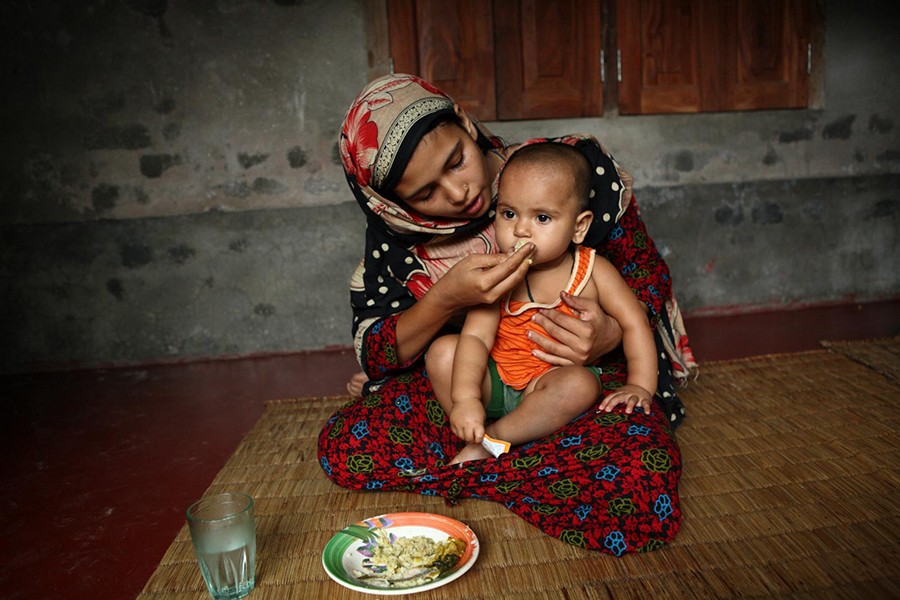Bangladesh sees sharp decline in child malnutrition, survey shows

Published :
Updated :

Bangladesh has witnessed a sharp decline in child malnutrition but a rise in violent disciplining of children, according to a new survey.
These findings came up in the Multiple Indicator Cluster Survey (MICS) 2019, jointly conducted by the Bangladesh Bureau of Statistics (BBS) and UNICEF, were revealed on Monday.
According to the survey, Bangladesh has made great strides in several areas related to health, nutrition, water, sanitation and hygiene, education, and child protection.
However, more needs to be done quickly if the country is to achieve its ambitious UN Sustainable Development Goals (SDGs) by 2030, the study noted.
One of the most positive developments witnessed in the survey was a sharp decline in chronic malnutrition as measured by stunting levels, which fell from 42 per cent in 2013 to 28 per cent in 2019.
The survey figures also showed that all child mortality rates (neonatal, post-neonatal, infant, and under-five) have had a downward trend in Bangladesh over the last 30 years.
Other welcome findings of the study include an increase in the availability of drinking water; better access to and use of toilets; an increase in the net attendance of children in primary and secondary schools; and an increase in birth registration, which ensures a child’s right to an identity.
At the same time, more rapid “progress with quality” is required for Bangladesh to continue as a thriving middle-income country. Issues such as the quality of education and drinking water, the battle against child marriage and violence against children continue to be highly prevalent protection issues, according to the survey report.
Violent disciplining of children also remains alarmingly high: Nine out of ten children under 15 are subjected to some form of violent disciplining by their parents or other caregivers, the survey revealed.
A great deal has been achieved to improve children’s lives between the 2012-2013 MICS and the 2019 MICS, it added.
For the 2019 MICS, the data was collected between 19 January and 01 June 2019 from 61,242 randomly selected households. The report provides in-depth and statistically reliable data from across all 64 districts.
sajibur@gmail.com


 For all latest news, follow The Financial Express Google News channel.
For all latest news, follow The Financial Express Google News channel.